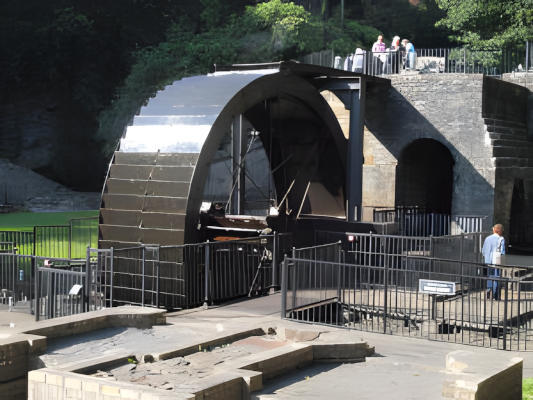
The Industrial Revolution - The first 150 years
Saturday 13 January 2024
19:45 to 21:30
The evening of 10th January was another “home grown” event, with the speaker being our own Vice Chairman, Paul Chaplin. The title of Paul’s talk was the Industrial Revolution, the first 150 years. It came as a slight surprise that Paul talked about the period 1650 to 1800, more of us would have viewed 1650 as at least a hundred years before the start of the phenomenon that came to be called the Industrial Revolution, but Paul made it plain that he saw the seventeenth century as a pre-dawn for what followed. That century had been a time of great change, incurring political, religious and social turmoil. We had executed the King, endured thirteen years as a republic, only to decide we wanted to be a monarchy after all. But there were great changes in thinking, with scientists like Isaac Newton, making new discoveries every day. More and more of the thoughts of inventors turned to making machines that could do repetitive jobs and undertake heavy labour. Early experiments had shown that the power of steam, if properly contained and regulated, had great potential for powering machinery, but how to produce it in large enough quantities?
There is no doubt that coal literally fuelled the Industrial Revolution. Wood was too useful and expensive to use in the furnaces need to heat the vast cylinders of water that produced steam to run, for instance, the machinery in cotton mills. The answer was to mine the huge underground resource of coal.
One of the big problems with mines is that they are subject to flooding and many inventors tried hard to design a pump that would clear a mine of water, but their efforts were only partially successful. It was a man called Thomas Newcomen who finally produced an efficient design and soon his pumps were being used in mines all over the country and in other parts of the world.
Another necessity for this new era was a good supply of iron, and using coke in iron production was a brilliant innovation by British engineers. Having invented all this big, heavy machinery, our highly skilled and resourceful inventors had to find a way of installing it in mines, factories and so on. This too, they solved, so changing society for ever.
PS from Paul: Boulton and Watt improved the Newcomen engine and created a monopoly by suing anybody who they considered infringed their patents. In 1800 the Boulton and Watt patents expired and steam engine development then leapt ahead hence my cut off date of 1800.
| Location |
Trinity Methodist Church, Rainsford Road Chelmsford Essex CM1 2XB (view map) |
|---|---|
| Cost | £3.00 Members / £5.00 Non-Members |
